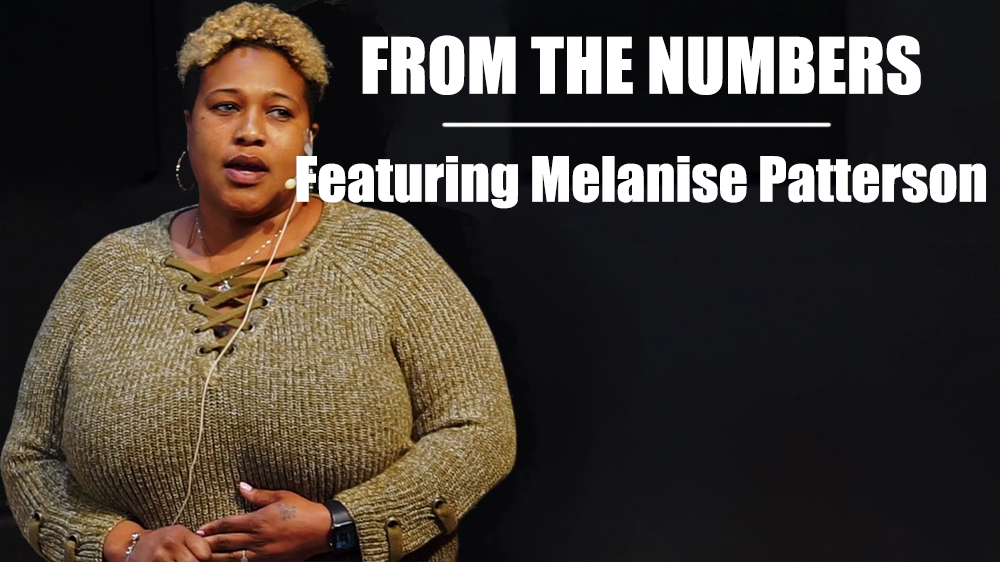
Melanise Patterson, Storyteller
Melanise Patterson was 14 years old when her world changed. “I was molested by someone close to me,” she said. “This made me feel very disgusted and just gross. And I felt even worse once I spoke up and was made out to be a liar.”
The assault itself, along with the disbelief she encountered, devastated her. As she puts it, “I was sentenced to life in prison before I was sentenced to life in prison.”
Being met with skepticism rather than support and love sent Melanise into a cycle of pain and bad choices. She’s not alone. Adolescents with unaddressed trauma often seek other ways to cope with or cover up their pain, including turning to alcohol or drugs to numb their feelings or venting their anger through antisocial activities like crime and violence. For instance, according to the International Society for Traumatic Stress Studies, adolescent survivors of sexual assault are 4.5 times more likely to experience alcohol abuse or dependence, 4 times more likely to experience marijuana abuse or dependence, and 9 times more likely to experience hard drug abuse or dependence.
Unfortunately, the bad decisions Melanise made weren’t free from consequences. In her case, her decisions led her to being sentenced to life in prison when she was just 19 years old. Like more than 85 percent of incarcerated women in America, she was both a survivor of sexual assault and someone who had been convicted of a crime. Stories like Melanise’s show how difficult it is to divide people into categories like “victim” and “perpetrator” when most people are both at different times in their life.
Once inside prison, Melanise at first doubled down on her bad choices, getting involved in drugs and fights. Eventually, though, she realized she had to stop. “I finally got tired of making same mistakes and getting same bad results,” she said.
Melanise began to change her life through education. While still incarcerated, she earned two professional certificates — one in food service and hospitality management and the other in business education technology. She did so well in those classes that she also became a tutor in them.
She also began attending Chance for Life, a program that teaches behavioral and life skills inside Michigan prisons. “That helped me identify who I was as a person. I could understand better why I made the decisions I made and did the things I did,” she said.
After 21.5 years of incarceration, it was apparent to both her family, friends and the parole board that Melanise was no longer the same person she was when she entered prison. She went home to the metro Detroit area in 2017 to a world she barely recognized in many respects.
She recalled her mother’s cell phone ringing as she was being driven home from prison. Her mother asked her to answer the phone but Melanise didn’t know how. She’d never had a cell phone before.
Other things in her life — like the trauma she incurred as a child — where harder to address. But understanding what happened to her, how she reacted to it and why she made the choices she did has been immensely rewarding for Melanise. She recommended that any other girl or woman who has survived sexual assault find someone she trusts to confide in, rather than trying to hold the hurt inside.
“Since I’ve been able to open up about it more and I have a great support system, it’s become a lot easier for me,” she said. “I would tell her to seek help. Speak to someone she feels she can trust in – a therapist or pastor. Whoever that may be, she needs to get it. the longer you hold it in, it just destroys yourself.”
